Key Takeaways:
- Shower filters can improve water quality by removing harmful contaminants.
- While shower filters can reduce some hardness minerals, they are less effective than whole-house water softeners.
- Using a shower filter can lead to healthier skin and hair by reducing exposure to chlorine and other chemicals.
Have you ever wondered if shower filters can soften water? If you’re dealing with hard water, you might wonder whether a shower filter can make a difference. This article dives deep into the topic, exploring how shower filters work, their benefits, and whether they can truly soften water.
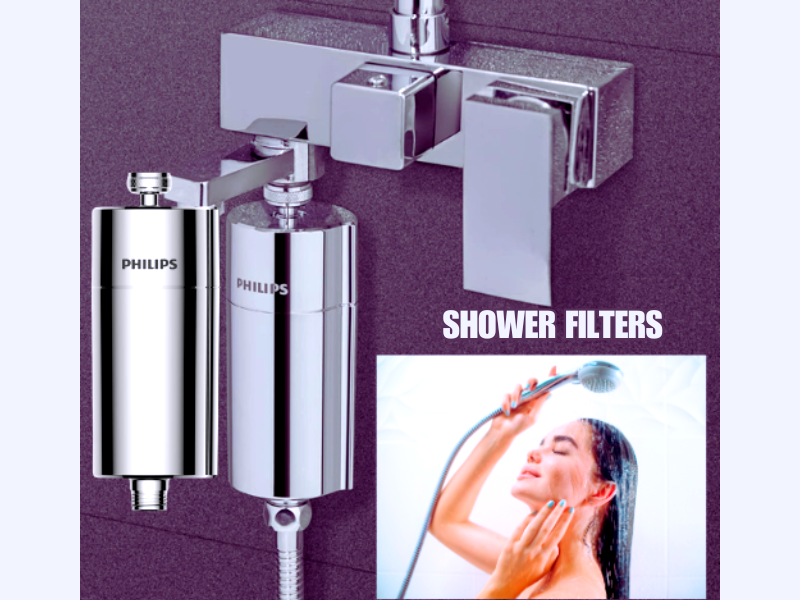
What is Hard Water?
Hard water contains high levels of minerals, particularly calcium and magnesium. These minerals can cause a variety of issues, from soap scum buildup to dry skin and hair. Hard water is a common problem in many households, and finding a solution is essential for maintaining healthy skin and hair.
How Do Shower Filters Work?
Shower filters are designed to remove impurities from your water. A shower head filter, for instance, is easy to install and highly effective in reducing contaminants. They typically use various filtration media, such as activated carbon, KDF filters, and vitamin C filters, to neutralize chlorine and other harmful contaminants. Shower filters can enhance your shower experience and promote better skin and hair health by improving water quality.
Types of Shower Filters
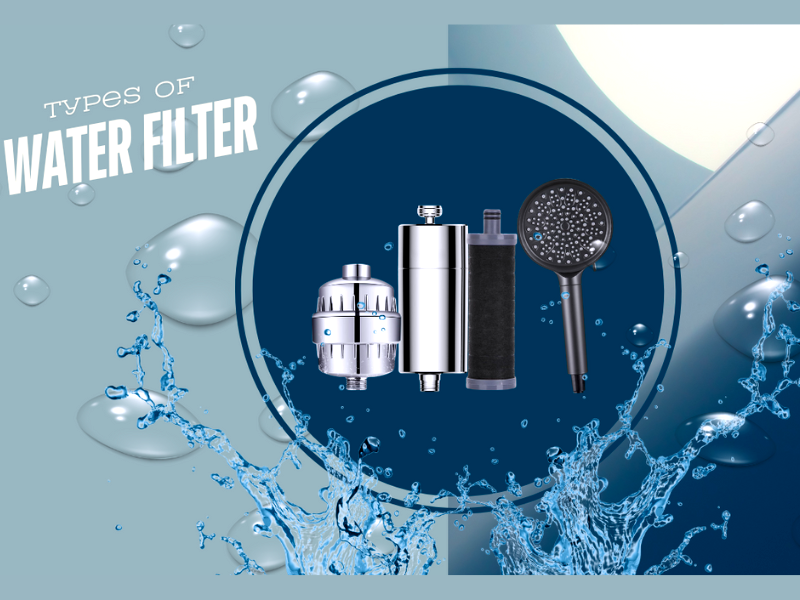
Several types of shower filters are available, each with its own set of benefits. Shower head filters, for instance, offer various functionalities, such as removing chlorine, reducing heavy metals, and improving water quality, which can be particularly beneficial for those with sensitive skin or hard water issues. Activated carbon filters are excellent at removing chlorine and organic compounds. KDF filters are effective at reducing heavy metals and chlorine. Vitamin C filters neutralize chlorine and chloramines, making them popular for sensitive skin users.
Can Shower Filters Soften Water?
While shower filters can improve water quality, they are less effective at softening water than whole-house water softeners. A showerhead water filter can help by removing chlorine and other impurities, but it has limitations in fully filtering hard water. Shower filters can reduce some hardness minerals but do not remove calcium and magnesium ions as efficiently as water softeners. If you’re looking for a solution to hard water, a whole-house water softener might be a better option.
The Role of Water Softeners
Water softeners use ion exchange to remove hardness minerals from water. Resin beads in the softener attract and hold onto calcium and magnesium ions, replacing them with sodium ions. This process effectively softens water, reducing the issues associated with hard water.
Benefits of Using a Shower Filter

Using a shower water filter can lead to several benefits, including healthier skin and hair, by removing harmful chemicals and impurities from the water. Shower filters can help maintain the natural oils in your skin and hair by eliminating chlorine and other chemicals, preventing dryness and irritation. Additionally, shower filters can improve water pressure and extend the life of your shower head.
Vitamin C Shower Filters
Vitamin C shower filters are particularly effective at neutralizing chlorine and chloramines. These filters use ascorbic acid to remove harmful chemicals, making them an excellent choice for those with sensitive skin. Vitamin C filters can also improve the overall quality of your shower water, leading to a more enjoyable shower experience.
Activated Carbon Filters
Activated carbon filters are widely used in shower filters due to their ability to remove chlorine, organic compounds, and other contaminants. However, it is important to note that activated carbon filters are less effective with hot water and may release trapped contaminants, posing health risks. These filters work by adsorbing impurities onto the surface of the carbon, effectively removing them from the water. Activated carbon filters can significantly improve water quality, making them a popular choice for many households.
KDF Filters
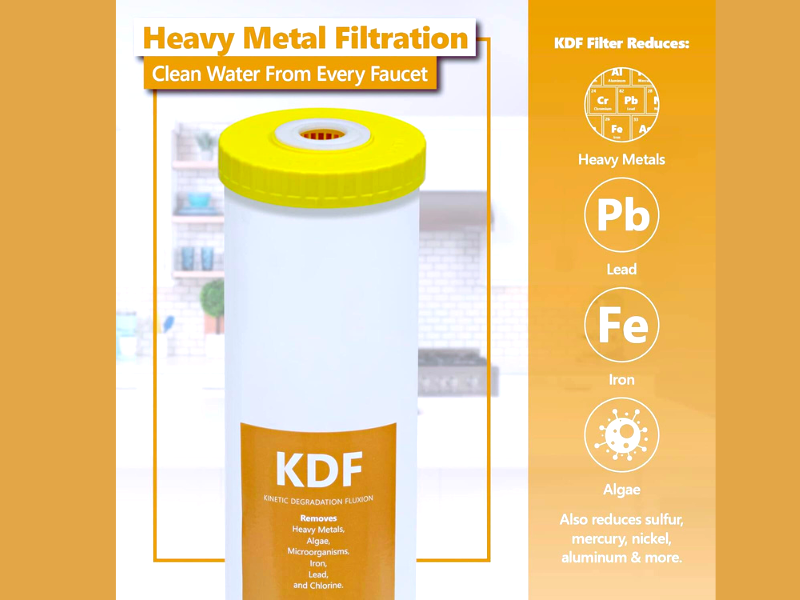
KDF filters combine copper and zinc to reduce chlorine, heavy metals, and other contaminants. These filters are particularly effective at removing chlorine and improving water quality. KDF filters can also help reduce the buildup of scale and soap scum, making them a valuable addition to any shower.
The Importance of Water Quality
Water quality is essential for maintaining healthy skin and hair. Hard water and chemical contaminants can cause dryness, irritation, and other issues. A shower filter can improve the quality of your water, leading to better skin and hair health.
How to Choose the Right Shower Filter
When choosing a shower filter, consider the contaminants you want to remove. Most shower head filters are designed to maintain water pressure and flow rates similar to standard showerheads, ensuring a rate of approximately 2.5 gallons per minute and a pressure rating between 40 to 80 psi, making them suitable for typical household use. An activated carbon or vitamin C filter might be the best choice if you're primarily concerned with chlorine. If you’re dealing with heavy metals, a KDF filter could be more effective. Additionally, consider the filter’s lifespan and ease of replacement.
Installing a Shower Filter
Installing a shower filter is typically straightforward. Shower head water filters are also easy to install and maintain, often requiring just a simple attachment to your existing shower head or arm. Most shower filters can be easily attached to your existing shower head or arm. Follow the manufacturer’s instructions for installation, and make sure to replace the filter cartridge as recommended to maintain optimal performance.
Maintenance and Replacement
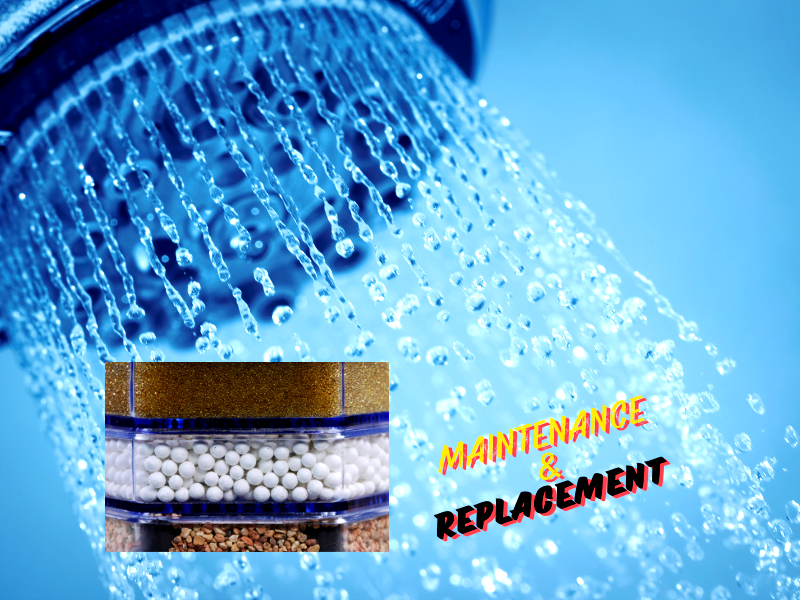
Shower filters require periodic replacement to remain effective. These essential devices improve the quality of shower water by removing harmful chemicals like chlorine. They also need regular maintenance to ensure optimal performance. The replacement frequency depends on the filter type and your water usage. Regularly replacing the filter cartridge ensures that your shower filter continues to remove contaminants and improve water quality.
The Cost of Shower Filters
Shower filters are generally affordable, with prices varying based on the type and brand. While the initial cost of a shower filter is relatively low, consider the long-term cost of replacement cartridges. Investing in a high-quality shower filter can lead to long-term cost savings by reducing the need for skincare and haircare products.
Comparing Shower Filters and Water Softeners
While shower filters can improve water quality, they are less effective at softening water than whole house water softeners. Water softeners use ion exchange to remove hardness minerals, providing a more comprehensive solution to hard water. However, shower filters can still offer significant benefits, particularly for sensitive skin.
The Impact of Hard Water on Skin and Hair

Hard water can have a detrimental effect on your skin and hair. The minerals in hard water can strip away natural oils, leading to dryness and irritation. A shower filter can help mitigate these effects by removing chlorine and other contaminants, promoting healthier skin and hair.
The Science Behind Water Softening
Water softening involves removing calcium and magnesium ions through a process called ion exchange. Resin beads in the water softener attract and hold onto these ions, replacing them with sodium. This process effectively softens water, reducing the issues associated with hard water.
The Benefits of Soft Water
Soft water offers several benefits, including reduced soap scum buildup, improved skin and hair health, and extended lifespan of plumbing fixtures. Soft water can make cleaning easier and more effective by removing hard minerals, leading to a more comfortable living environment.
The Role of Reverse Osmosis Systems
Reverse osmosis systems are another option for improving water quality. These systems use a semi-permeable membrane to remove contaminants, including hardness minerals, from water. While reverse osmosis systems are typically used for drinking water, they can also be used with shower filters to provide comprehensive water treatment.
Testing Your Water Hardness
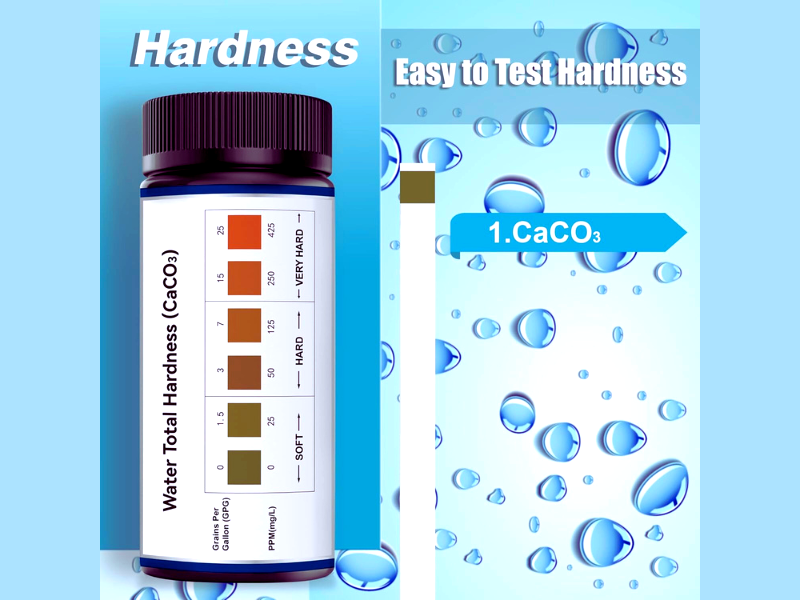
You can use a hard water test kit to determine if you have hard water. These kits are readily available and easy to use, quickly and accurately measuring your water’s hardness. Knowing your water hardness can help you choose the right water treatment solution for your needs.
The Importance of Regular Maintenance
Regular maintenance is essential for ensuring the effectiveness of your shower filter. This includes replacing the filter cartridge as recommended and cleaning the shower head to prevent buildup. Proper maintenance can extend the lifespan of your shower filter and ensure optimal performance.
The Environmental Impact of Shower Filters
Using a shower filter can positively impact environmental by reducing the need for bottled water and other single-use products. Additionally, shower filters can help reduce the amount of chlorine and other chemicals released into the environment, promoting a healthier ecosystem.
The Role of Filtration Media
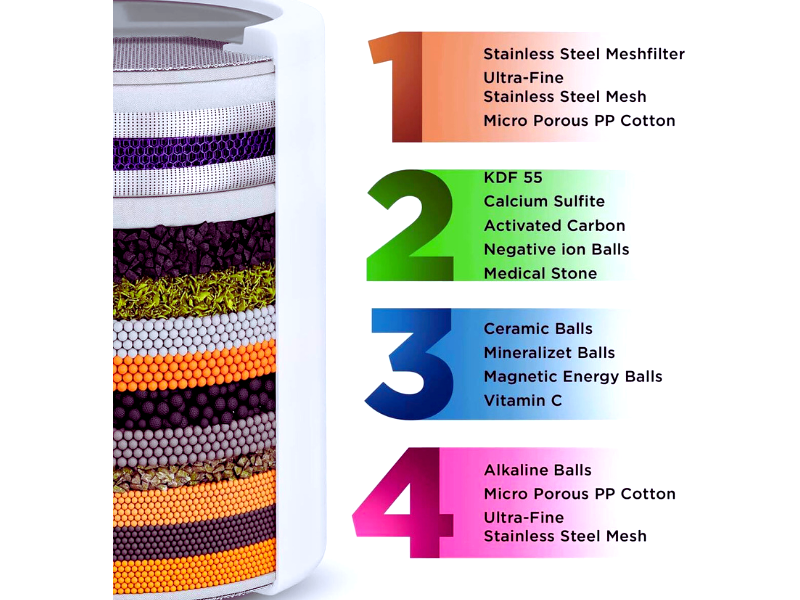
Filtration media play a crucial role in the effectiveness of shower filters. Different types of media, such as activated carbon, KDF, and vitamin C, target specific contaminants, improving water quality. Understanding the role of filtration media can help you choose the right shower filter for your needs.
The Benefits of Vitamin C Filters
Vitamin C filters are particularly effective at neutralizing chlorine and chloramines. These filters use ascorbic acid to remove harmful chemicals, making them an excellent choice for those with sensitive skin. Vitamin C filters can also improve the overall quality of your shower water, leading to a more enjoyable shower experience.
The Advantages of Activated Carbon Filters
Activated carbon filters are widely used in shower filters due to their ability to remove chlorine, organic compounds, and other contaminants. These filters work by adsorbing impurities onto the surface of the carbon, effectively removing them from the water. Activated carbon filters can significantly improve water quality, making them a popular choice for many households.
The Effectiveness of KDF Filters
KDF filters combine copper and zinc to reduce chlorine, heavy metals, and other contaminants. These filters are particularly effective at removing chlorine and improving water quality. KDF filters can also help reduce the buildup of scale and soap scum, making them a valuable addition to any shower.
The Role of Resin Beads in Water Softeners
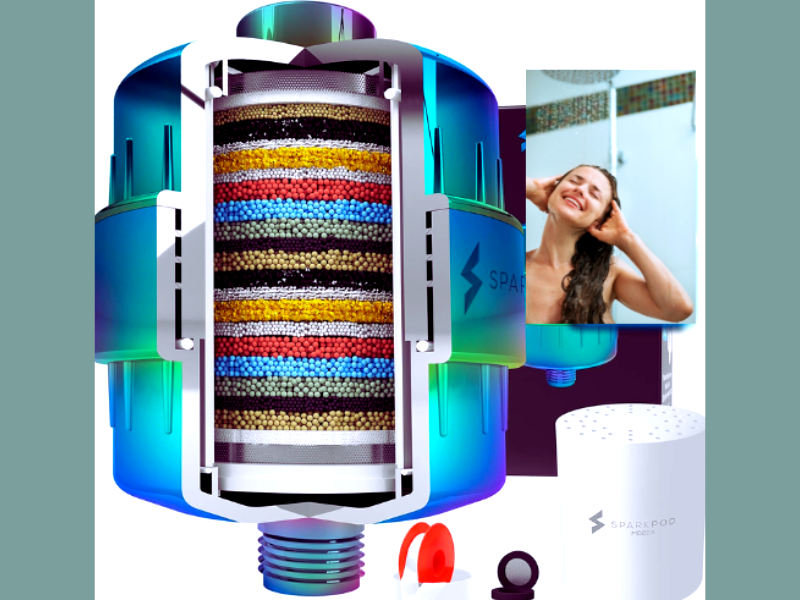
Resin beads are a key component of water softeners. They attract and hold onto calcium and magnesium ions. This process, known as ion exchange, effectively removes hardness minerals from water, providing a comprehensive solution to hard water. Understanding the role of resin beads can help you appreciate the benefits of water softeners.
The Benefits of Ion Exchange
Ion exchange is a highly effective method for removing hardness minerals from water. By replacing calcium and magnesium ions with sodium ions, ion exchange softens water, reducing the issues associated with hard water. This process can lead to improved skin and hair health and extended lifespans of plumbing fixtures.
The Impact of Water Hardness on Plumbing Systems
Hard water can cause significant damage to plumbing systems, leading to scale buildup and reduced water flow. Water softeners can help protect your plumbing system and extend its lifespan by removing hardness minerals. This can lead to long-term cost savings and a more efficient household water supply.
The Benefits of Soft Water for Household Appliances
Soft water can extend the lifespan of household appliances by reducing scale buildup and improving efficiency. Appliances such as dishwashers, washing machines, and water heaters can benefit from soft water, reducing maintenance costs and improving performance.
The Role of Water pH Levels
Water pH levels can impact the effectiveness of shower filters and water softeners. Maintaining a balanced pH level is essential for optimal water quality and performance of filtration systems. Understanding the role of water pH levels can help you choose the right water treatment solution for your needs.
The Importance of Water Flow
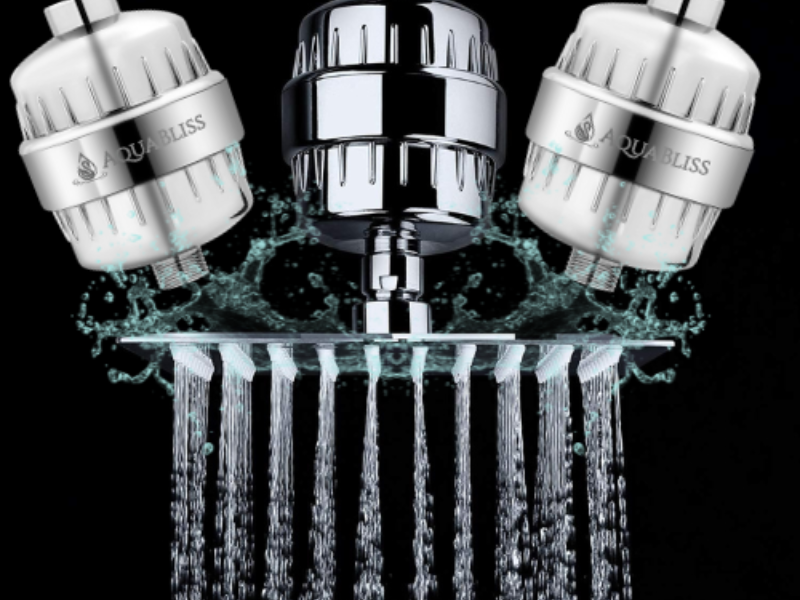
Water flow is an important consideration when choosing a shower filter. Some filters can reduce water pressure, impacting your shower experience. Choosing a filter that maintains adequate water flow can ensure a comfortable and enjoyable shower.
The Benefits of Soft Water for Skin and Hair
Soft water can lead to healthier skin and hair by reducing dryness and irritation. By removing hardness minerals and chemical contaminants, soft water helps maintain the natural oils in your skin and hair, promoting overall health and well-being.
The Role of Chlorine in Water Quality
Chlorine is commonly used to disinfect tap water, but it can negatively affect your skin and hair. Shower filters can effectively remove chlorine, improving water quality and promoting healthier skin and hair. Understanding the role of chlorine in water quality can help you appreciate the benefits of shower filters.
The Impact of Chemical Contaminants
Chemical contaminants in tap water can cause various health issues, from skin irritation to long-term health risks. Shower filters can help remove these contaminants, improving water quality and promoting overall health. Understanding the impact of chemical contaminants can help you choose the right water treatment solution for your needs.
The Benefits of Using a Shower Filter
Using a shower filter can lead to several benefits, including healthier skin and hair. Shower filters can help maintain the natural oils in your skin and hair by removing chlorine and other chemicals, preventing dryness and irritation. Additionally, shower filters can improve water pressure and extend the life of your shower head.
The Role of Water Softening in Shower Filters
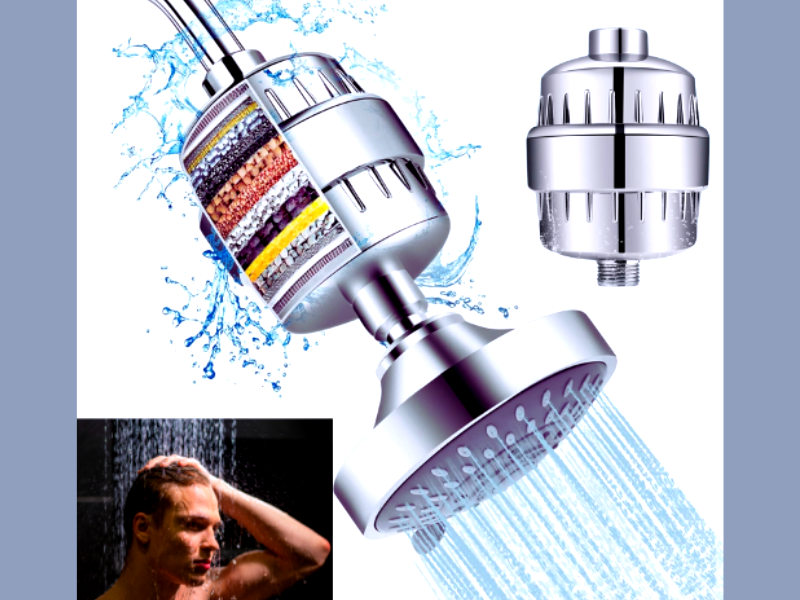
While shower filters can improve water quality, they are not as effective at softening water as whole-house water softeners. Shower filters can reduce some hardness minerals, but they do not remove calcium and magnesium ions as efficiently as water softeners. If you’re looking for a solution to hard water, a whole-house water softener might be a better option.
The Benefits of Whole House Water Softeners
Whole-house water softeners provide a comprehensive solution to hard water by removing hardness minerals from your entire water supply. This can lead to improved skin and hair health, reduced scale buildup, and extended lifespans of plumbing fixtures and household appliances. Investing in a whole-house water softener can provide long-term benefits for your home.
Summary
Shower filters can significantly improve water quality by removing harmful contaminants like chlorine and heavy metals. While they can reduce some hardness minerals, they are less effective at softening water than whole-house water softeners. Using a shower filter can lead to healthier skin and hair, improved water pressure, and a more enjoyable shower experience. Regular maintenance and choosing the right filter are essential for optimal performance.
Keep up with the latest water filter tips and offers, and subscribe to our newsletter today!
FAQ
Can shower filters soften water?
Shower filters can reduce some hardness minerals, but they are not as effective at softening water as whole-house water softeners. If you’re looking for a comprehensive solution to hard water, a whole-house water softener might be a better option.
How often should I replace my shower filter?
The frequency of replacement depends on the type of filter and your water usage. Most shower filters require replacement every 6 to 12 months. Follow the manufacturer’s recommendations for optimal performance.
What are the benefits of using a shower filter?
Using a shower filter can lead to healthier skin and hair by removing chlorine and other harmful contaminants. Shower filters can also improve water pressure, reduce soap scum buildup, and extend the life of your shower head.








